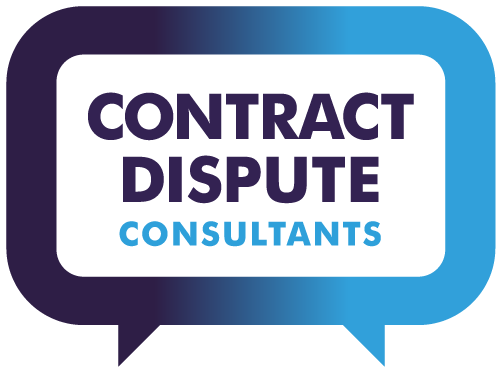Essential aspects of NEC4 Contracts
The NEC4 Engineering and Construction Contract (“ECC”) is designed to promote collaboration between the parties, but certain provisions require careful attention to avoid disputes and ensure smooth project delivery. Below are some critical aspects to consider when executing a construction project using an NEC4 contract.
Order of precedence of Contractual Documents
Unlike some standard forms, such as the Hong Kong’s General Conditions of Contract, the NEC4 ECC does not explicitly state the priority of contract documents. This absence creates a risk that conflicting provisions in different documents could override the core conditions. Under clause 17.1, if an ambiguity or inconsistency arises, the Project Manager or Contractor must notify the other party, and the Project Manager must then determine how to resolve it. Parties should proactively clarify document hierarchies early to prevent disputes.

Notification of Compensation Events
The NEC4 imposes strict notice requirements for compensation events. Contractors must notify the Project Manager within eight weeks of becoming aware of an event (clause 61.3), or risk losing entitlement to both time and money.
However, this can lead to “compensation event overload”, where Contractors issue notices pre-emptively to avoid missing deadlines, overwhelming the Project Manager with assessments. To mitigate this:
- Clients should ensure the Project Manager has adequate resources or consider extending notice periods.
- Contractors must train their teams to identify genuine compensation events and submit notices only when necessary.
Clause 60 outlines 20 compensation events, with an additional option to include more in the Contract Data (clause 60.1(21)). Both parties have notification obligations:
- The Project Manager must notify events arising from their or the Supervisor’s actions (clause 61.1). This includes: changes to Scope (60.1(1)); instructions to stop or not start any work or change a Key Date (60.1(4)); instruction to deal with an object of value or historical artifact (60.1(7)); changes to decision of the Project Manager or Supervisor which has previously been communicated to the Contractor (60.1(8)); search for Defects and no Defect is found (60.1(10)); the Project Manager certifies take over of a part of the works before Completion and the Completion Date (60.1(15)); the Project Manager notifies the Contractor of a correction to an assumption about a compensation event (60.1(17); proposed instructions not accepted (60.1(20).
- The Contractor must notify events it believes qualify as compensation events, provided the Project Manager hasn’t already done so (clause 61.3).
Note, there is no time limit for notification of events under clause 61.1. If the Project Manager fails to notify, the Contractor can instead notify.

Preparation and Assessment of Quotations for Compensation Events
Once notified, the Contractor must submit a quotation within three weeks (clause 62.3), detailing adjustments to the Prices, Completion Date, or Key Dates. The Project Manager then has two weeks to accept, request revisions, or assess the event independently. If no response is given, the quotation may be deemed accepted (clause 62.6).
Compensation events are assessed under clause 63, and in relation to Prices, it is assessed by reference to (clause 63.1):
- the actual Defined Cost of the work done to date
- the forecast Defined Cost of the work not yet done
- the resulting Fee
The requirement to forecast Defined Cost creates problems for both Project Managers, Clients and Contractors. For Project Managers and Clients, the risk of accepting a forecast which appears inflated can lead to the Client team deferring assessment or denying entitlement. This is a particular problem with high impact compensation events on large government projects where limits of authority create a friction between the contract time limits and internal procedures. The inclusion of risk allowances for time and cost arising from a compensation event appear to create particular difficulties for client teams. The Project Manager may be tempted to delay assessments until an event is over, and then request that the Contractor demonstrate ‘cost incurred’.
For Contractors, there is the risk of under-estimating the impact of compensation events where forecasting the impact is difficult. This is a significant risk as once accepted, a quotation cannot be re-opened. If the Contractorgets his quotation wrong, then he is stuck with the consequences. The Contractor should ensure that, unless the risks can be notified as separate compensation events, all the time and cost impacts of a compensation event are included in a quotation.
These issues create a tension in the contract administration, particularly on projects subject to significant amount of change. However, some of these risks can be managed and minimised by the Project Manager stating assumptions to be considered when requesting quotations (Clause 61.6). If these assumptions subsequently prove to be wrong, the Project Manager notifies a correction.

Conclusion
The NEC4 ECC encourages proactive management and collaboration between the parties, but demands strict compliance with notice and assessment procedures.
The key takeaways include:
- Clarifying document hierarchy early to avoid conflicts.
- Submitting timely compensation event notices while avoiding excessive notifications.
- The Project Managershould state assumptions where the reasonable forecasts of the impacts of a compensation event are difficult to make. These can be subsequently corrected.
- Ensuring efficient quotation processes to prevent delays or deemed acceptances.
By understanding these critical aspects, both Contractors and Project Managers can minimize disputes and enhance project efficiency and collaboration.
Contract Dispute Consultants Limited
With offices in Hong Kong and Singapore, CDC are Asia’s leading claims and contractual consultancy providing support to first tier contractors working on complex infrastructure and building projects worldwide. We work to manage and minimise contractual risk to assist contractors in negotiating early resolution of issues before they escalate. Recent assignments have included advising contractors on NEC3 and NEC4 projects involving metro, tunnels and water works. Other assignments have included rail projects in Canada and Hong Kong, cable stayed bridges in the United States, Canada and Hong Kong, power projects in the UK and airport projects.

Hong Kong Airport Midfield Terminal
